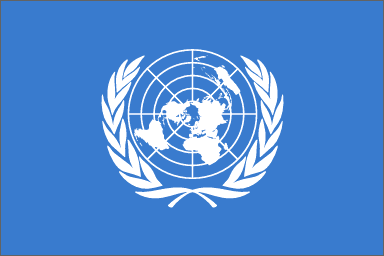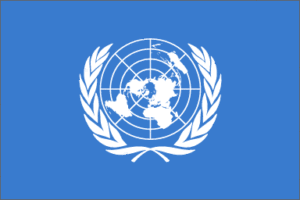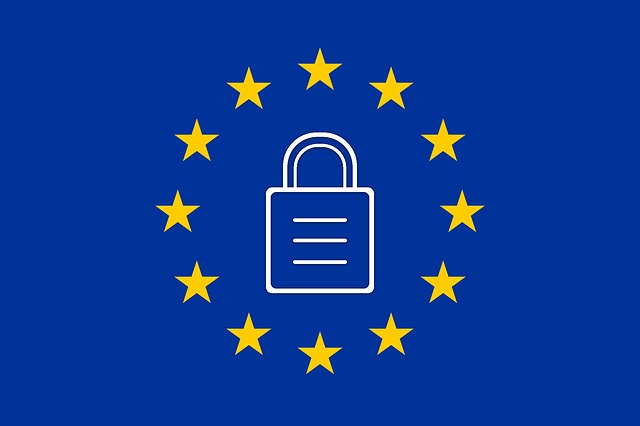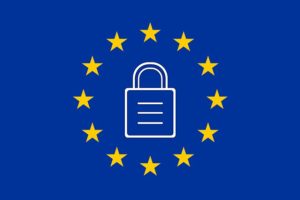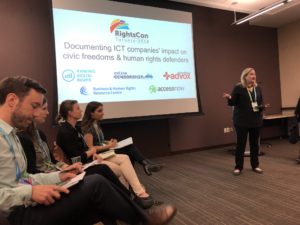04 Jun UN Human Rights Council report on platform content regulation cites and reinforces RDR findings and recommendations
Last week David Kaye, the UN Special Rapporteur on the promotion and protection of the right to freedom of opinion and expression, published a landmark report examining State and company regulation of online expression. Kaye’s report, which will be presented to the Human Rights Council on June 19th, offers a human rights framework to guide companies in moderating online content. (Update: please note that the date of the HRC presentation has been corrected from July to June 19th.)
Drawing on the UN Guiding Principles on Business and Human Rights and other “best practices in the field” the Special Rapporteur outlines measures that companies should incorporate into their interactions with governments and the development and enforcement of their own rules and policies. These measures emphasize transparency, due diligence, regular public input and engagement, and access to remedy.
The Ranking Digital Rights Corporate Accountability Index evaluates some of the world’s most powerful companies on whether and how they enact just such types of policies and measures. In December we submitted a paper highlighting relevant findings and recommendations from the 2017 Corporate Accountability Index—focusing on the question of whether and how platforms can respect users’ rights in policing online content. Kaye’s report cites RDR’s data and analysis in several places, and refers to RDR’s Index as “the leading review of Internet transparency.”
Our latest 2018 Corporate Accountability Index further reinforces the conclusions of Kaye’s report. As we noted in our analysis of corporate governance disclosures, few companies provide evidence of systematic human rights due diligence, particularly in relation to how they formulate and enforce their own terms of service. Transparency reporting was found to be weakest around the private policing of content. Platforms are much less transparent in general about how content is restricted than about how the companies respond to government requests for user data.
The Special Rapporteur also called on governments to ensure that “their policies toward online expression, and toward the platforms, sustain enabling environments for freedom of expression.” As we highlighted in our 2018 Index report, many countries’ laws and government policies are preventing companies from maximizing transparency around how online expression is policed and governed. Many of Kaye’s recommendations to governments overlap with several of RDR’s 2018 recommendations for governments. Specifically, we recommended:
- Corporate accountability: Ensure that laws and regulations maximize companies’ ability to be transparent and accountable with users about how they receive and handle government and other third-party requests to restrict speech or information flows, or to share user information. Laws that prevent transparency and cannot be justified on public security grounds, in line with international human rights standards, should be reformed.
- Government accountability: Publish government transparency reports that disclose the volume, nature, and legal basis for requests made to companies to share user information or restrict speech. This should be a fundamental component of any nation’s commitment to open government.
- Judicial remedy: Ensure that adequate judicial remedies are in place for internet users whose freedom of expression and privacy rights are violated.
- Corporate remedy: Require companies to provide and implement effective mechanisms for grievance and remedy that are accessible to users who believe that their freedom of expression and privacy rights have been violated in connection with the use of a company’s products and services.
- Legislative accountability: Carry out human rights due diligence to ensure that laws and regulations governing ICT sector companies do not have a negative impact on internet users’ freedom of expression and privacy as defined by the Universal Declaration of Human Rights and international human rights instruments, such as the International Covenant on Civil and Political Rights.
We are excited to work with the Special Rapporteur and the community of stakeholders who provided input into this year’s report to promote global platform governance that is compatible with international human rights standards.
Kaye’s June 19th presentation in Geneva will be livestreamed at http://webtv.un.org/
[Corrected 13 June: The original version of this post incorrectly gave the date of Kaye’s Geneva presentation as July 19th instead of June 19th.)